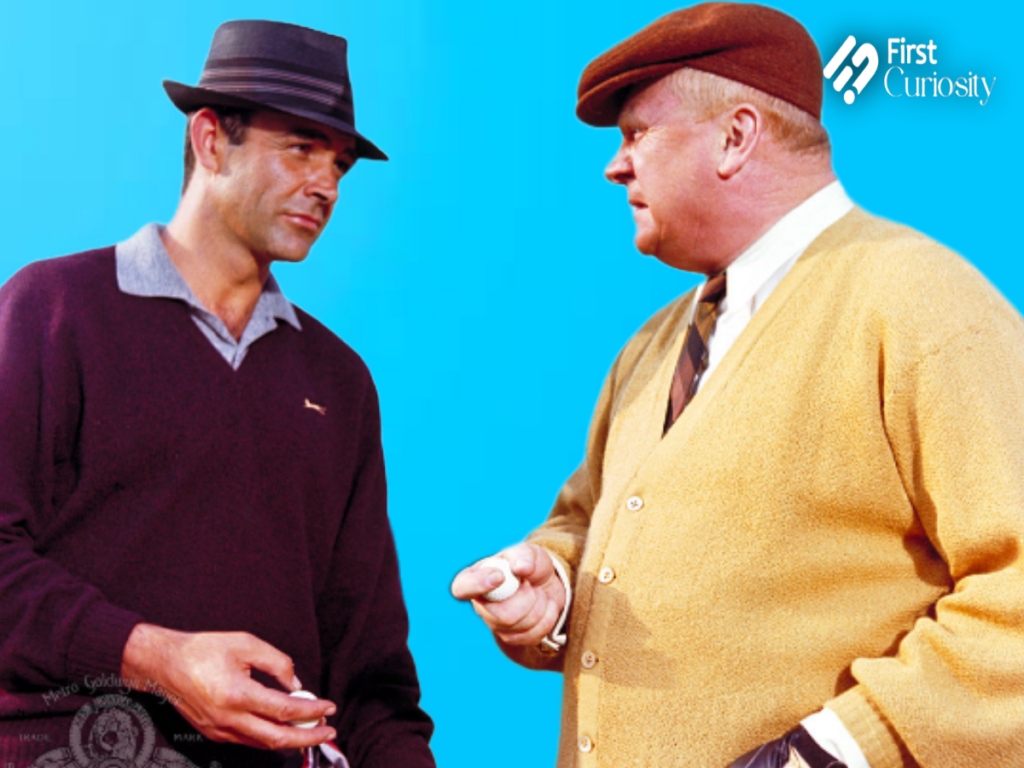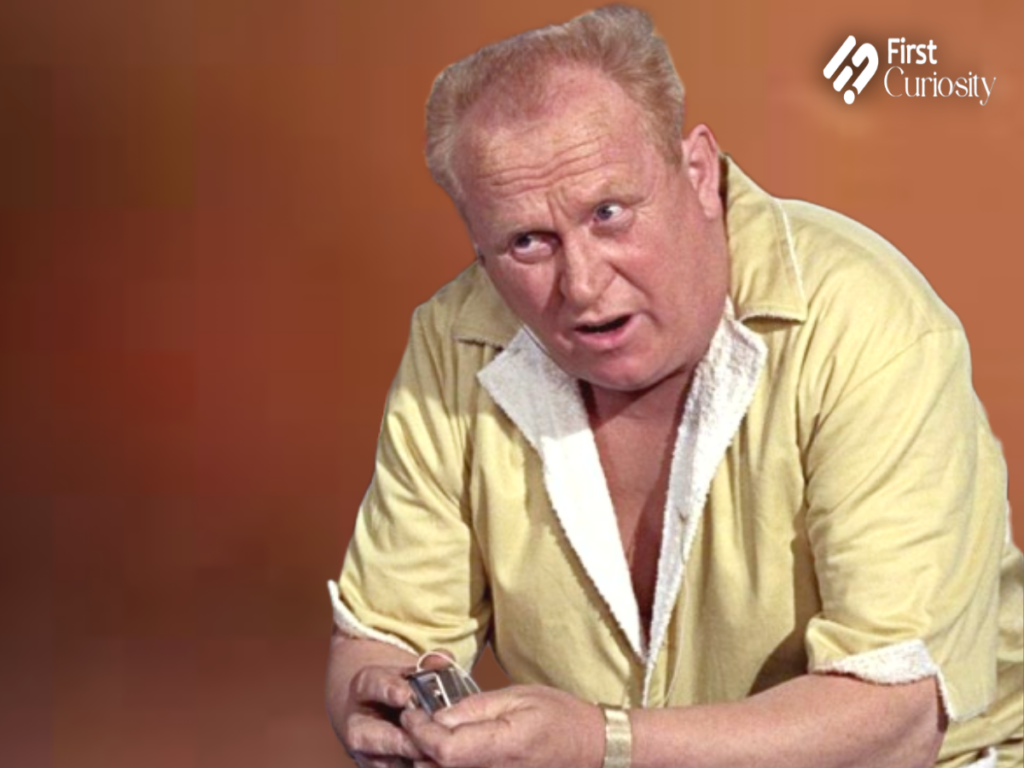Ian Fleming’s iconic character James Bond has long been the subject of many superhit films apart from being a celebrated figure in the world of literature. The iconic film ‘Goldfinger‘, based on James Bond’s character, still remains a cornerstone of cinematic history. However, it is not without its imperfections. Below its glossy exterior lies a tale of condemnation and hatred that one of its actors infamously retained in his heart against the Jews.
In one particular scene in the film, Bond lures the Auric Goldfinger, played by Gert Fröbe, into a high-stakes wager involving a bar of “lost” Nazi gold. While it was not clear if Goldfinger’s character was anti-semitic in the film, Fröbe’s own Nazi affiliations in real life had gotten the film mired in controversy, even leading to its ban in Israel.
Gert Fröbe’s Nazi Past How It Impacted The Legacy of ‘Goldfinger’

Gert Fröbe, the German actor who played the villain Goldfinger in the third part of the James Bond movie series ‘Goldfinger‘, found himself under heavy scrutiny when reports of his Nazi past surfaced. Born in the coal mining village of Zwickau in Germany, Fröbe had risen to some considerable fame when his involvement with the Nazi Party during his young days marred his well-earned success. The revelation sparked uproar, leading to losses on many levels for the actor.
Israel was quick to impose a ban on ‘Goldfinger‘ and all of Fröbe’s subsequent films after finding out about his Nazi connections. The country cited concerns about screening productions getting former Nazis involved in their projects. However, the ban did not persist for too long, as it was later found that Fröbe had helped a Jewish woman and her son during World War II. Two months after Israel’s initial action, the ban was lifted.
Fröbe had put a lot of effort into playing Goldfinger’s character on screen. He chose to take on the role despite his limited command of the English language and even garnered critical acclaim upon the film’s release in 1964. Though almost all of his lines in the film were dubbed by the English actor Michael Collins, Fröbe’s performance overpowered his drawback.
His acting was enough to leave a lasting impression on the audience. In fact, his role is considered pivotal in bringing some heavy commercial success for ‘Goldfinger‘, which is still one of the highest-grossing Bond films of all time. It was with this film that he solidified his status as an actor worthy of Hollywood. However, his alleged association with the Nazis dimmed his shine.
In case you missed it: “Maybe I’m Too Old Now Or Maybe I’m Not”: Henry Cavill On His Prospects For James Bond Role After Fake Trailer Goes Viral
‘Goldfinger’ Weathered Many Storms, But Emerged Victorious

Though ‘Goldfinger’ found initial favor in Israel after its 1965 premiere, the controversy Fröbe’s got reignited when the London Daily Mail published a story in December with the headline “Of course I was a Nazi!” The article revealed Gert Fröbe had admitted to being a member of a Nazi party.
The timing of Fröbe’s disclosure was also unfortunate, as it came while he was set to play Nazi general Dietrich von Choltitz in an upcoming film. Reflecting on his past, Fröbe revealed his affiliation with the Nazi party at the age of 16, in 1929 , and attributed it to the economic promises of Hitler. Fröbe was brought up in Zwickau, a coal mining village in Saxony. His surroundings were majorly responsible for his decision, as many around him believed at the time that Hitler could revitalize the economy.
However, the tolerance for films with Nazi affiliations in Israel had already been very low, as German-language films were banned in Israel until 1967. The nation was very evidently sensitive to potential Nazi affiliations among actors and filmmakers. The prevalence of figures associated with the Third Reich in post-war German cinema was undeniable. The wartime associations in the German cinematic scenario had rendered it important for Israel’s government to be careful about films with German roots.
Despite not being a German film, ‘Goldfinger‘ bore the brunt of hiring a German actor in a pivotal role. Yet, Fröbe’s Nazi affiliations were not the only contentious aspect of ‘Goldfinger’. Before its premiere in America, the film faced threats of censorship over the character name “Pussy Galore“. The character’s name had sparked debates about gender representation and sexualization in cinema.
Bond’s treatment of women and instances of sexual assault within the film also drew controversy. In the decades since its release, ‘Goldfinger‘ has weathered many storms of controversy, but has still managed to retain the James Bond franchise’s cultural impact.
You might also like to read:





